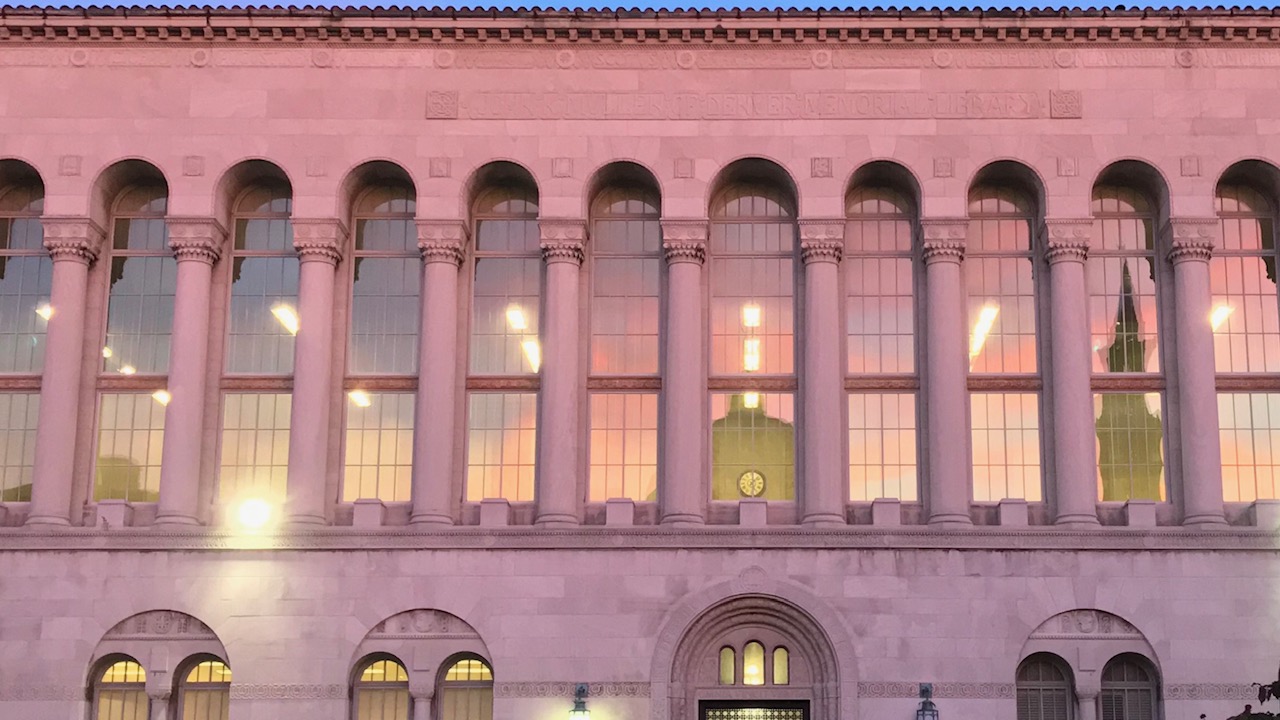Librarians and information specialists may work at colleges and universities, in community or school libraries, for the government, at specialized technological research institutes, or almost anywhere in between. One former Catholic University librarian, for example, began with an undergraduate degree in classics from another university, earned a library science (M.S.L.S.) degree, and was the head of our Architecture and Engineering Library before moving on to serve as a librarian at NASA.
We focus here on academic librarianship, which is the area of the profession most likely to be of interest to classicists.
What an academic librarian does
Academic librarians, as Dr. Kimberly Kelley, the former dean of Catholic University's own Department of Library and Information Science has observed, supervise the "finding, organizing, preserving and presenting" of knowledge in a variety of media. Based at colleges and universities, in both main campus libraries and smaller departmentalized settings, these professionals not only make research possible for others, but also engage in and present research themselves, whether in their home academic disciplines or in library science and information technology.
Academic library positions are often defined by areas of specialization and responsibility. As outlined in greater detail by the WESS Committee on Recruitment to the Profession, a librarian may work, for example, in acquisitions, cataloging, information technology, preservation (including rare books and manuscripts), reference, or a combination of these areas. Demand for trained academic librarians is constant, and the job prospects in this field are generally excellent.
The educational path
Graduate school and librarianship
A future academic librarian will need to earn a master's degree in library science (generally labeled at most schools as an M.L.S., Master of Library Science, or M.S.L.S., Master of Science in Library Science). The American Library Association (ALA) is the accrediting body for these programs and maintains a directory of them: there are dozens available, located throughout the US and Canada.
The M.L.S. is considered the highest professional degree in the field; however, many classics and archaeology specialists in the largest university libraries have also attained Ph.D. degrees in their respective academic areas, as well as the M.L.S. degree. (The Ph.D. in this case is generally acquired first and the M.L.S. afterwards or at the same time as either the doctorate or the M.A.)
Recommendations for undergraduate preparations
If you are interested in a career in academic librarianship, you should follow the suggestions long made by Catholic University's own Department of Library and Information Science. They generally recommend that you pursue undergraduate studies that help you to develop good research and writing skills and to become comfortable with the use of technology. This means that you can select whatever major is of greatest interest to you for your B.A., as long as you are able to demonstrate in your master's application that you are committed to your chosen career path and the wide variety of responsibilities it will bring.

